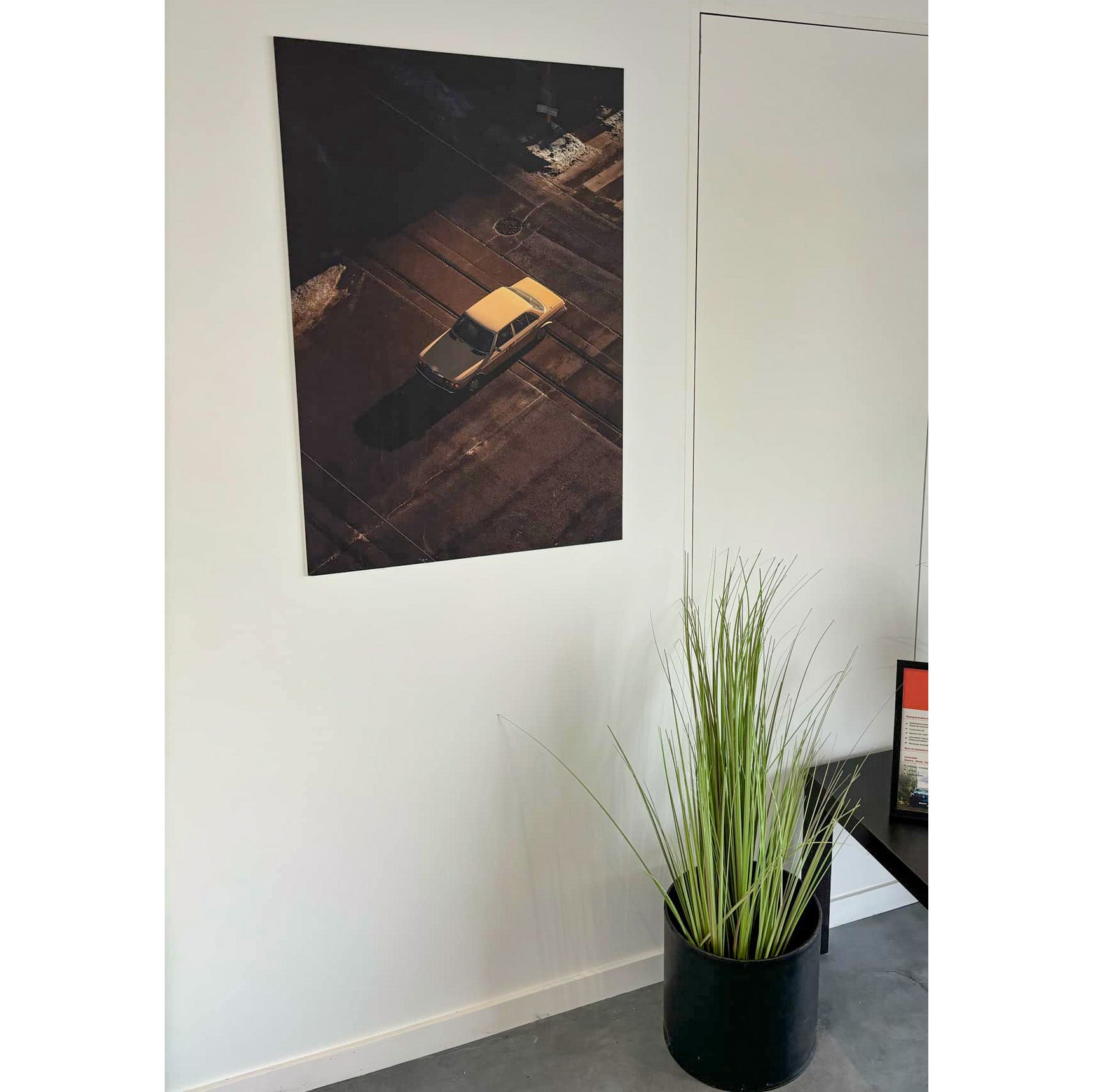Art print | Feminine deity - Emanuel Gottlieb Leutze


View from behind

Frame (optional)
The "Feminine Deity" by Emanuel Gottlieb Leutze is a work that transcends the simple frame of painting to immerse the viewer in a universe rich in symbolism and emotion. This piece, emblematic of its time, evokes not only beauty and grace but also a spiritual depth that invites contemplation. By scrutinizing every detail, one discovers a subtle dialogue between the sacred and the profane, a duality that echoes the artist's concerns. The depiction of femininity, both divine and human, opens a field of interpretations that encourage reflection on the role of women in society and art.
Style and uniqueness of the work
Leutze's style is distinguished by an impressive mastery of light and color, which gives the "Feminine Deity" a vibrant and dynamic atmosphere. Delicate nuances and striking contrasts create a captivating visual harmony, where each element seems to breathe. The composition, carefully orchestrated, guides the viewer's gaze through a complex visual narrative. The posture of the central figure, both majestic and approachable, embodies a quiet strength, while the ornamental details surrounding it add a dimension of richness and depth. This work also stands out for its commitment to universal themes, such as motherhood, wisdom, and beauty, which resonate across ages.
The artist and his influence
Emanuel Gottlieb Leutze, born in Germany and having emigrated to the United States, managed to blend European influences with a new American context. His artistic journey is marked by a desire to pay tribute to values such as freedom and human dignity, themes reflected in his works. The "Feminine Deity" fits within this lineage, celebrating feminine strength while questioning the gender stereotypes of its time. Leutze was also influenced by the Romantic movement, seeking to express intense emotions and capture the spirit of his era. His impact on American art is undeniable, and his legacy continues to inspire many contemporary artists exploring themes of identity.

Matte finish

View from behind

Frame (optional)
The "Feminine Deity" by Emanuel Gottlieb Leutze is a work that transcends the simple frame of painting to immerse the viewer in a universe rich in symbolism and emotion. This piece, emblematic of its time, evokes not only beauty and grace but also a spiritual depth that invites contemplation. By scrutinizing every detail, one discovers a subtle dialogue between the sacred and the profane, a duality that echoes the artist's concerns. The depiction of femininity, both divine and human, opens a field of interpretations that encourage reflection on the role of women in society and art.
Style and uniqueness of the work
Leutze's style is distinguished by an impressive mastery of light and color, which gives the "Feminine Deity" a vibrant and dynamic atmosphere. Delicate nuances and striking contrasts create a captivating visual harmony, where each element seems to breathe. The composition, carefully orchestrated, guides the viewer's gaze through a complex visual narrative. The posture of the central figure, both majestic and approachable, embodies a quiet strength, while the ornamental details surrounding it add a dimension of richness and depth. This work also stands out for its commitment to universal themes, such as motherhood, wisdom, and beauty, which resonate across ages.
The artist and his influence
Emanuel Gottlieb Leutze, born in Germany and having emigrated to the United States, managed to blend European influences with a new American context. His artistic journey is marked by a desire to pay tribute to values such as freedom and human dignity, themes reflected in his works. The "Feminine Deity" fits within this lineage, celebrating feminine strength while questioning the gender stereotypes of its time. Leutze was also influenced by the Romantic movement, seeking to express intense emotions and capture the spirit of his era. His impact on American art is undeniable, and his legacy continues to inspire many contemporary artists exploring themes of identity.









